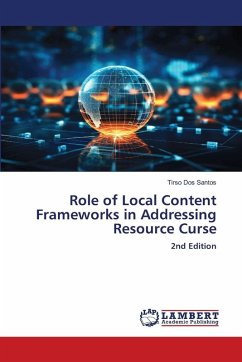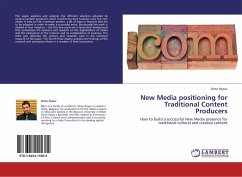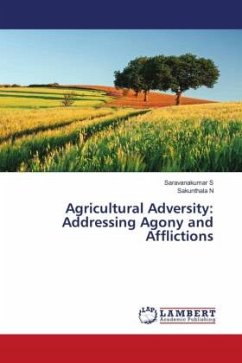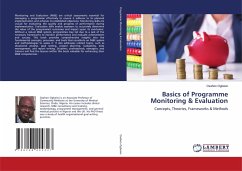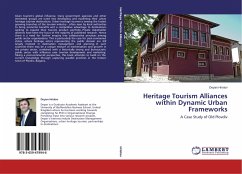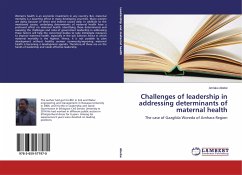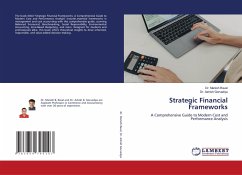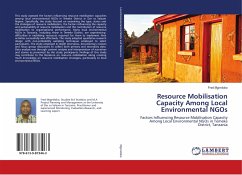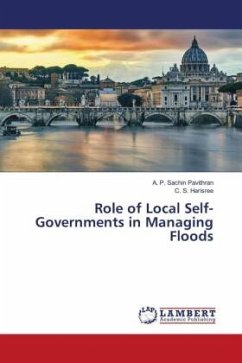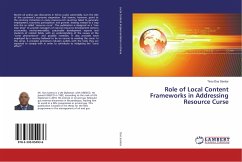
Role of Local Content Frameworks in Addressing Resource Curse
Versandkostenfrei!
Versandfertig in 6-10 Tagen
56,99 €
inkl. MwSt.

PAYBACK Punkte
28 °P sammeln!
Recent oil and/or gas discoveries in Africa could, potentially, turn the tide of the continent's economic stagnation. Past lessons, however, point to the contrary. Extraction in many resource-rich countries failed to generate employment, economic participation and growth, leading instead to a trap into the so called 'resource curse'. This publication is designed as a "one stop shop" to provide managers of natural resources development sectors; economists; environmentalists; sustainable development experts and students of related fields, with an understanding of the causes of the "curse phenome...
Recent oil and/or gas discoveries in Africa could, potentially, turn the tide of the continent's economic stagnation. Past lessons, however, point to the contrary. Extraction in many resource-rich countries failed to generate employment, economic participation and growth, leading instead to a trap into the so called 'resource curse'. This publication is designed as a "one stop shop" to provide managers of natural resources development sectors; economists; environmentalists; sustainable development experts and students of related fields, with an understanding of the causes of the "curse phenomenon" and possible remedies. It also provides tools employed by a country believed to be on course to evading the curse. In this sense, it provides petroleum industry outlets with the tools they are expected to comply with in order to contribute to mitigating the "curse effect".



